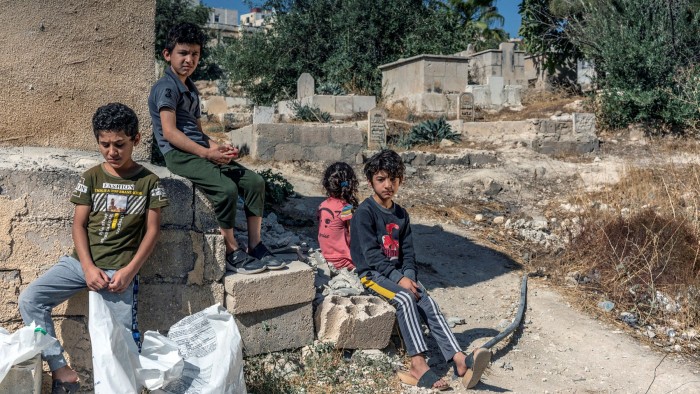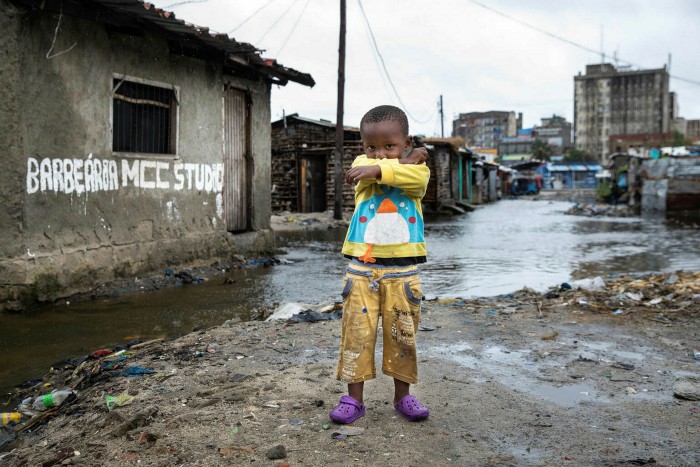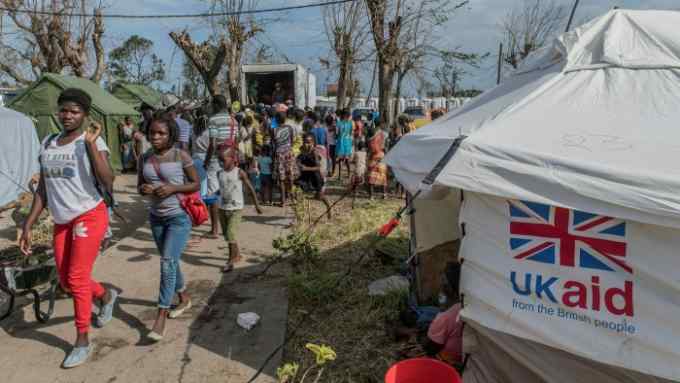Helping children out of Covid is a moral and economic imperative

Simply sign up to the Coronavirus economic impact myFT Digest -- delivered directly to your inbox.
Children are the main victims of many of the world’s big infectious diseases. Every year, scourges from malaria and measles to pneumonia and tuberculosis each kill hundreds of thousands of children. But not Covid.
The extreme response of locking down economies was adopted by the world’s leaders to protect the elderly and other medically vulnerable people against a disease that most children and the young survive relatively unharmed. Less than one-third of 1 per cent of global Covid deaths have been among under-20-year-olds, according to Unicef.
Even so, children are proving to be the pandemic’s most significant indirect victims. The economic downturn — the most severe in generations, perhaps ever in peacetime — disproportionately hit poorer families, many of whose children already lived precariously. This may have pushed as many as 142m children worldwide below monetary poverty lines by the end of 2020.
That damage goes beyond the merely monetary. Some children and teenagers will have lost a parent or other adult provider. Worsening economic insecurity means nutritional needs became harder to meet. And strained health systems have neglected such important interventions as childhood immunisation. Just as important as health and livelihoods is education: lockdowns interrupted the schooling of hundreds of millions of children — for more than a whole year for some.
As the contributors to this report show so forcefully, there is a moral imperative to help the world’s children out of this pandemic, and to make good the losses they have suffered in terms of health, education and economic security.

The losses may not be fully recoverable. As Esther Duflo, a development economist and recipient of the 2019 Nobel memorial prize for economics, has warned: “One year without schooling . . . could turn into just a completely wasted cohort because you don’t catch up. The curriculum is already often too ambitious as it is in normal times so, in addition, if you try to shove it in the throat of children who had been out of the system for a year or 18 months, it is just going to be very difficult. That could create conditions where the scarring would be very long-term.”
As for childhood immunisations, the Gates Foundation finds that “vaccination rates are going back to 1990s levels” because of the pandemic. It adds that, sometimes, “these vaccinations are simply delayed, and kids can ‘catch up’ later without much consequence. However, some infections, such as measles, spread easily, and even short-term disruptions can lead to immediate increases in illness and death.”
In other words, there is an urgent need to do the utmost to undo — or at least minimise — the damage.
This is not just a matter of doing right by the world’s children. There is also an overwhelming pragmatic case for promptly channelling resources to help them. In recent decades, researchers have proved beyond any doubt just how much is at stake in providing children with the right resources — educational, nutritional, social and financial — especially in early childhood.
Investing in children pays for itself many times over. The return on high-quality early childhood education is nothing short of staggering, as James Heckman, another economics Nobel laureate, has shown. Heckman and his collaborators have found that the real social returns on money spent on high-quality childcare and learning interventions in early life can be high as 13 per cent per year.
And that is in rich countries. For poor countries, where these things are severely underfunded, the return is likely to be much higher still. It is a false economy for richer countries to shave a little off their deficits by skimping on their aid to poorer ones.
There is good reason, instead, to see the crisis — and its dire consequences for children — also as an opportunity. Before the pandemic, many countries had observed decades of progress in children’s living standards, proving that the right policies with resources behind them do achieve results. Redoubling our efforts now, and fast, can be expected to do the same.
As Oxford university’s Sabina Alkire writes in this report, even a country as challenged as Sierra Leone achieved reductions in poverty after its Ebola epidemic.
It is, finally, not just a matter of what we owe to the world’s young (or our enlightened self-interest) but also of what they demand of us. This report includes a conversation between Mary Robinson, former Irish president and chair of The Elders group, and three young campaigners from three continents. They illustrate that people born this century are already shaping the trajectory of the world, above all in spurring on climate change policy. Taking them as seriously as they deserve is to bet on the future.

Comments